
CricMASH — A corner of the cricket world where tinted glasses are removed, brutally scraped and returned free from the rosy effects of retrospection, recency, biases and illusions.
CricMASH — A place where history is documented with rigour and honesty. With no time or space for myths, legends and polishing halos.
Yet we maintain the charm of the great game through extensive accounts of cricketers, matches, evolution, analysis and anecdotes.
CricketMASH Publications considers cricket a global sport. It publishes books that go beyond boundaries and are not restricted to corners of any designated home or foreign fields. We distribute our books across the globe.
Our authors includeL
AUTHORS we have published under our banner:
David Frith, John Agard, Arunabha Sengupta, Qamar Ahmed, Megan Ponsford, Ray Markham, Michael Jones, Mayukh Ghosh, Maha, Pradip Dhole.
Prospero Caliban Cricket by John Agard with introduction and commentary by Arunabha Sengupta
Has-Beens-Never-Will-Bes
by
Megan Ponsford
From Score Box to Press Box by Ray Markham
The Ashes: This Thing Can Be Done
Story of The Ashes where all the Tests are ‘Drawn
by Arunabha Sengupta and Maha
The Postman who delivered The Ashes : The Life and Times of Harry Trot by Pradip Dhole
George Ayling: Sergeant Major and Umpire by Michael Jones
CricketMASH is delighted to announce the forthcoming publication of Paddington Boy by David Frith
Apartheid: A Point to Cover
South African Cricket 1948-1970 and the Stop The Seventy Tour
by
Arunabha Sengupta
Billy Midwinter and the Dawn of Test cricket by Pradip Dhole
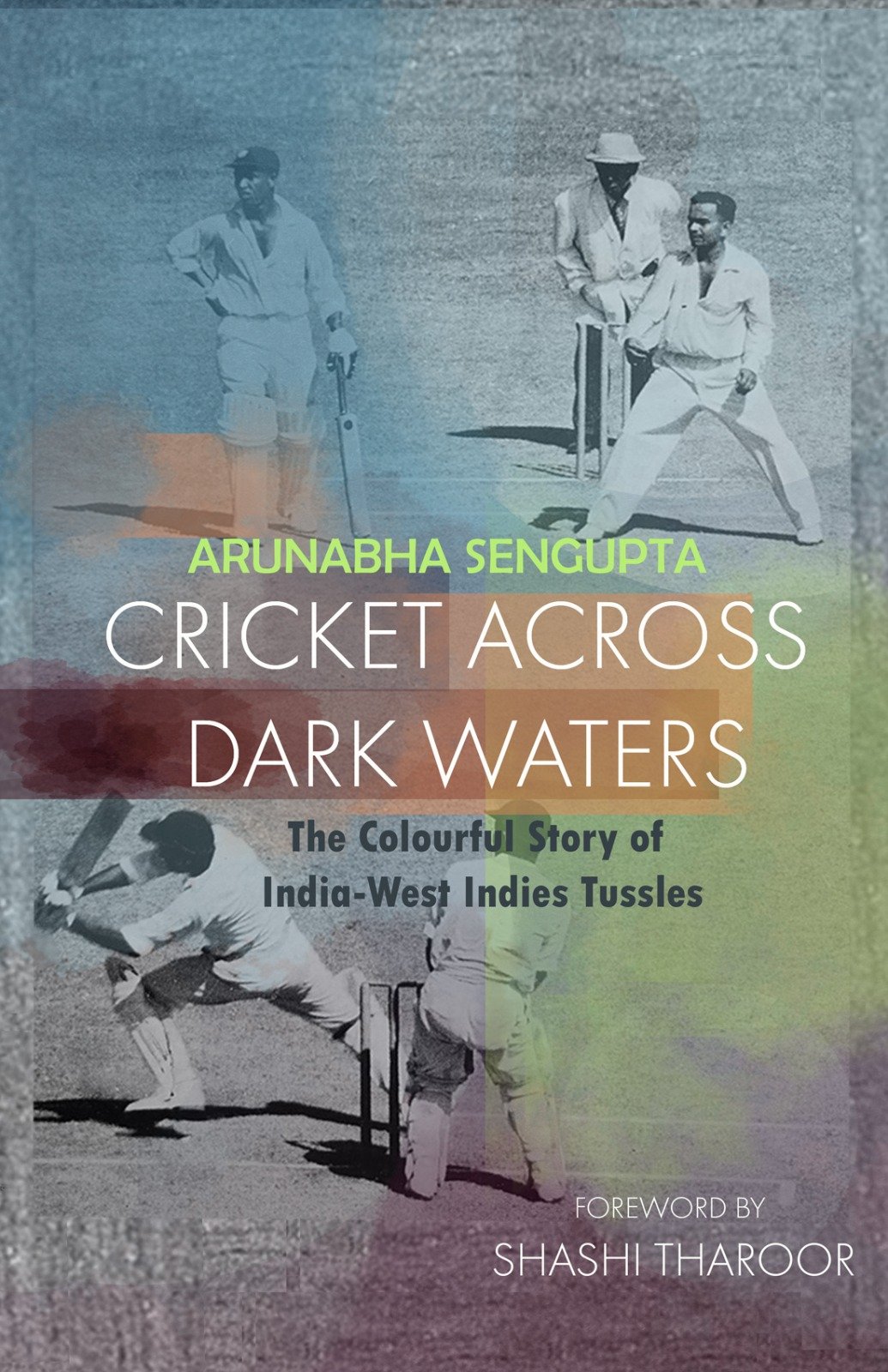
Featured Book:
The Has-Beens and Never-Will-Bes
by Megan Ponsford
A Boy’s Own Adventure of Australian Cricket and The Raj
A much needed account of the 1935-36 Australian tour of India
Includes rare and exclusive photographs
With a foreword by Gideon Haigh
Written with a light and quirky touch, sometimes high-flown, sometimes teasingly, never dull - David Frith
In this episode of Stories Behind Books, Mayukh Ghosh covers An Unusual Celebrity: The Many Cricketing Lives of Bill Bowes by Jeremy Lonsdale
Arunabha Sengupta reviews baseball-linked historical crime thriller Double Play by Robert B Parker
Arunabha Sengupta reviews the classic, and often neglected in cricket circles, novel Netherland by Joseph O’Neill
In this episode of Stories Behind Books Mayukh Ghosh looks at the story behind FootPrints - the cream of a the life’s work of David Foot, selected by Stephen Chalke
In this episode of Stories Behind Books Mayukh Ghosh looks at the tale behind Laker’s Match 19 Wickets and The Ashes by Vic Rigby
In this episode of Stories Behind Books, Mayukh Ghosh looks at the story behind Prospero Caliban Cricket by John Agard
In this episode of Stories Behind Books Mayukh Ghosh covers An Island’s Eleven by Nicholas Brookes
In this episode of Stories Behind Books, Mayukh Ghosh looks at One Day at a Time by David Tossell
In this episode of Stories Behind Books, Mayukh Ghosh looks at Sticky Dogs and Stardust by Scott Oliver
In this episode of Stories Behind Books, Mayukh Ghosh writes about Far More Than A Game by Qamar Ahmed
In this episode of Stories behind Books, Mayukh Ghosh traces the tale behind Megan Ponsford’s The Has-Beens and Never-Will-Bes
In this episode of Stories Behind Books, Mayukh Ghosh looks at Unveiling Jazbaa by Aayush Puthran
In this episode of Stories Behind Books, Mayukh Ghosh discusses Black Swan Summer with Max Bonnell and Andrew Sproul
In this episode of Stories Behind Books Mayukh Ghosh looks at First of the Summer Wine by Harry Pearson
Dreaming the Impossible by Mihir Bose comes through with flying ‘colours’ writes Arunabha Sengupta
In this episode of Stories Behind Books, Mayukh Ghosh covers Playing with Teeth by Jake Perry
In this episode of Stories Behind Books, Mayukh Ghosh looks at the tale associated with The Graham Barlow Story by James Hawkins
Maverick Commissioner by Boria Majumdar was a story that needed to be told, writes Arunabha Sengupta
In this episode of Stories Behind Books Mayukh Ghosh looks at Bart King of Philadelphia by Stephen Musk and Roger Mann
In this epoisode of Stories Behind Books Mayukh Ghosh looks at The Troubled Tour by David Potter
In the new episode of Stories Behind Books, Mayukh Ghosh uncovers the tale behind Arunabha Sengupta’s new book Elephant in the Stadium
In the new episode of Stories Behind Books, Mayukh Ghosh speaks to Christopher Sandford about his latest book Laker and Lock
Stories Behind Books: Mayukh Ghosh covers how David Woodhouse came to write his classic account of Hutton’s Men in the West Indies 1953/54
In this episode of Stories Behind Books, Mayukh Ghosh covers Hampshire County Cricket: Prior to The Formation of The County Club In 1863, Home Grounds and Matches, First-Class Players - a deeply researched work by Stephen Saunders
Richie Lionell V and Ramya Mylavarapu have produced a primer on telling stories with data that has used cricket as the medium of instruction and the book seems to have impressed Arunabha Sengupta a lot.
In this episode of Stories Behind Books, Mayukh Ghosh takes us behind the scenes of the new book on Jack Cuffe by Pat Rodgers
New in Stories Behind Books : Mayukh Ghosh talks about the backstory of The Altham-Bradman Letters
In this episode of the Favourite Cricket Books series, Mayukh Ghosh talks to Australian writer Barry Nicholls.
In this episode of Favourite Books, Mayukh Ghosh focuses on a slightly antipodean list by Bill Francis
Andre Odendaal, who made us aware of the untold cricket history, was born on 4 May 1954.
Cricket fans perceive themselves as the elites following the most noble of games. Football adherents think they are serving the King of Sports. Arunabha Sengupta reflects how in many respects these are just many ways to the same goal.
(Ruud Gullit was born on 1 Sep 1962. It seems a good piece to share on his birthday.)
A unique project at the Sussex County Cricket Club carried out by Arunabha Sengupta and Maha of CricMASH
30 Aug 1948. Martin Donnelly bowled off a ball that pitched behind the stumps
The unsuccessful dance down the wicket. A woman named Mildred Rowley was granted divorce because her husband was cricket-mad.
20 Aug 1888 EM Grace opens the innings and chooses his partner after being dropped
25 July 1870 James Southerton thought he is out, no one else did
12 July 1961. George Best ended up in the wrong Old Trafford
12 July 1913. The only time c Beet b Root appeared on the scoreboard of a First-Class match. Arunabha Sengupta looks back at the game in which the Beet-Root combination struck for the first and only time for Derbyshire.
One of Trueman’s gretest one-liners were uttered on 7 July 1954
First-class cricketer who did not ever bat, bowl or field
June 29, 1818. MCC played the Gentlemen of England with some stretched rules. Arunabha Sengupta looks back at the game in which only one bowler was employed by the Gentlemen across two innings, and voices a suspicion that cannot be ignored.
29 June 1964. Officiating in the Glamorgan-Warwickshire match was the colourful former Australian cricketer Cec Pepper. And his umpiring, apparently flawless, had some undercurrents of deception. Arunabha Sengupta recalls the hilarious incident.
27 June 1876. WG on the wrong side of gamesmanship
18 June 1963 The Kent Middlesex match held up by traffic
14 June 1953 Benaud’s 11 doubles before facing Bradman
13 June 1970 … The exchange between Ken Shuttleworth and Ray East
12 June 1972 Swansea PA promises refund for Somerset’s defensive cricket against Glamorgan
11 June 1896. The story of the most ridiculous bet.
Errol John, Moon on a Rainbow Shawl, Cricket and the Caribbean - by Arunabha Sengupta
August 7, 1924. As Joseph Conrad, one of the greatest novelists in English language, made his final journey to the Canterbury Cemetery, the town was overflowing with visitors and festooned with flags for the Annual Cricket Week.
Alfred, Lord Tennyson, born 6 August 1809, was the Poet Laureate of Great Britain and Ireland for much of the reign of Queen Victoria. His grandson, Lionel Tennyson, went on to lead Hampshire and England at cricket. However, the poet did not have much of an idea about the noble game.
On the birth anniversary of the Bard of Avon, Arunabha Sengupta recalls William Shakespeare the cricketer
HG Wells, born September 21, 1866, was one of the greatest authors in English language. However, it is rarely recounted that his father Joseph Wells was a useful First-class cricketer and Wells himself harboured a passion for the game even if he did not play it. Arunabha Sengupta traces the cricketing connections of the author of ‘The War of the Worlds’ and talks about a brilliant essay he penned about cricket.
Sir JM Barrie, creator of Peter Pan, was unabashedly devoted to cricket, to a degree that contrasted incredibly with his limited talents in the game. His travelling cricket team of writers and other celebrities remain one of the curious sidenotes in the history of the game. Pradip Dhole writes about the incredible man, his incredible team and his incredible passion.
Arunabha Sengupta takes a look at the references to the noble game made in the collection of Bond novels, short stories and movies.
Was there a PG Wodehouse connection to the googly or vice-versa? Arunabha Sengupta finds out
Lord Byron, born January 22, 1788, did not walk in beauty; and his gait was as unlike any night of cloudless climes and starry skies as can get. In fact, he had a club foot. However, he did venture onto the cricket pitch in the rather prestigious Eton vs Harrow encounter of 1805. Arunabha Sengupta recalls the poet on the pitch.
Of Didcot and the Demon was published on Oct 28, 2009
Mayukh Ghosh remembers Siegfried Sassoon
Kurt Vonnegut (born November 11, 1922), who passed away on April 11, 2007, did not write about cricket and precious little about any other sport. Yet, in his writings, Arunabha Sengupta finds eerie, striking and painful description of the lot of the cricket writer.
Elizabeth Barrett Browning, born March 6, 1806, was one of the most famed poets of the Victorian era. But, there is enough evidence to suggest that she also played a bit of cricket at Colwall Green. Arunabha Sengupta recounts three references to cricket that she jotted down in her diary.
William Wordsworth, born April 7, 1770, the romantic poet extraordinaire, also found solace in watching cricket. Arunabha Sengupta writes about the cricketing connections of the man instrumental in launching the Romantic Age of English literature.
he first tour of English cricketers to Australia, in 1861-62, took place as a replacement show because Charles Dickens had refused to travel that far to give his celebrated readings. But the great writer was connected to the game in many more ways. Arunabha Sengupta sketches the various links between the noble game and the most popular novelist in English language.
In ‘Murder Must Advertise’, the eighth novel involving the aristocratic detective Lord Peter Wimsey, Dorothy L Sayers devotes an entire chapter to cricket. The game also plays a pivotal part in the plot of the mystery novel. Arunabha Sengupta writes about the book and the cricketing associations of Sayers.
Khushwant Singh, born February 2, 1915, lived life to his fullest before passing away in his hundredth year. Abhishek Mukherjee looks at the cricket ties of the celebrated author.
Virginia Woolf was born January 25, 1882. Abhishek Mukherjee looks back at a pioneer of modernism who — among many things — played cricket.
Cricket is mentioned in Northanger Abbey, but not very flatteringly and only twice. But Jane Austen is startlingly linked to the evolution of the game. Arunabha Sengupta talks about the way about her letters, her words, her relations and the round-arm bowling revolution.
August 23, 2009. Harry Potter and Draco Malfoy watched a day’s cricket at The Oval, even spending some time on the Test Match Special. Arunabha Sengupta takes a look at the cricketing connections of Daniel Radcliffe.
Agatha Christie, born September 15, 1890, was one of the most popular crime fiction writers of all time – almost certainly the most prolific. Arunabha Sengupta writes about the cricketing connections of the creator of Hercule Poirot and Miss Marple.
Born October 16, 1854, Oscar Wilde never exchanged his pen for the willow. However, Arunabha Sengupta traces some connections of the great writer with cricket, not all of them very flattering for either the man or the game.
CP Snow, born October 15, 1907, was a renowned novelist best known for his ‘Strangers and Brothers’ series of novels. Arunabha Sengupta recounts the many close and touching ways that cricket played a role in his life and works.
It is not very well known that John Fowles, the British novelist who passed away on November 5, 2005, was a fine cricketer in his youth and a devoted fan of the game. Arunabha Sengupta relates one bizarre cricket viewing experience during the final years of his life.
Mickey Arthur and Michael Clarke are collaborating on their book on innovative concepts to win in India. The publication is set to hit the stands under the name “2013: A Pace Odyssey” by Arthur C. Clarke. Arunabha Sengupta reports.
Arunabha Sengupta sketches the many cricketing connections of the man who created Sherlock Holmes.
PG Wodehouse, the greatest humorist in English language, wrote quite a bit about cricket and was a useful cricketer himself. Arunabha Sengupta explores the cricketing connections of the great writer on his 131st birthday.
Hansie Cronje, born September 25, 1969, will be forever linked to bookmakers and match-fixing and the murkier side of cricket. However, he was also one of the greatest captains the world has seen who lives on in many minds as a splendid leader who somehow lost his way.
Part 10 of an exquisitely detailed biography of Billy Midwinter by Pradip Dhole. The travelling cricketer played four Test matches for England, sandwiched between eight Tests Australia and holds a unique place in cricket history as the only cricketer to have played for both Australia and England in Test Matches against each other
Mohinder Amarnath, born 24 September 1950, is synonymous with guts and glory in Indian cricket, the man who hooked the fastest bowlers off his face and for one golden year enjoyed magical success against the best of them. Arunabha Sengupta look back at a career which saw some staggering highs and an equal number of inexplicable lows.
On 21 September 1901 was born the first great West Indian cricketer to capture public imagination. Arunabha Sengupta recounts the all-round genius of Baron Learie Constantine — on the field of play and in the greater arena of life.
Mike Procter, born 15 September 1946, was a devastating fast bowler and a destructive batsman who had enough polish to become a pillar of the top order. Unfortunately, what promised to be a glittering career for one of the best all-rounders of all time was restricted to a mere seven Tests due to South Africa’s isolation. Arunabha Sengupta recalls the playing days of this extraordinary cricketer.
Part 9 of an exquisitely detailed biography of Billy Midwinter by Pradip Dhole. The travelling cricketer played four Test matches for England, sandwiched between eight Tests Australia and holds a unique place in cricket history as the only cricketer to have played for both Australia and England in Test Matches against each other
Shane Warne, born 13 September 1969, resurrected the art of leg-spin bowling, adding substance, style and glamour to the most intriguing of cricketing crafts, writing a new chapter big enough to merit a dedicated volume. Arunabha Sengupta looks at the career, wickets and transgressions of this living headline of the world of cricket.
Wes Hall, born 12 September 1937, was a legendary fast bowler, who later played the roles of a selector, manager and even Board President. He also became a minister in both the political and religious senses of the word. Arunabha Sengupta pays tribute to the big man with a great heart.
Lala Amarnath, the man of who scored the first Test century for India was born September 11, 1911. Abhishek Mukherjee looks back at the career of Lala Amarnath, arguably the most colourful cricketer India has produced.
Saeed Anwar, born September 6, 1968, was one of the greatest opening batsmen produced by Pakistan, who could destroy bowlers with silken grace. Arunabha Sengupta remembers the career of the southpaw who held the record for the highest score in One Day Internationals for 13 years.
Garth le Roux was born September 4, 1955 — too late to play Test cricket before South Africa’s isolation and too early to represent his country after their return to the fold. But, as he demonstrated in World Series Cricket, during his stint for Sussex and in the ‘Tests’ played against the rebel sides, he was one of the foremost fast bowlers of his generation. Arunabha Sengupta looks back at the playing days of the man who finished as the highest wicket taker for South Africa in the rebel ‘Tests’.
The ebullient David Bairstow was born September 1, 1951. Abhishek Mukherjee looks at one of the characters of Yorkshire cricket who was taken away by the demon called depression.
Part 8 of an exquisitely detailed biography of Billy Midwinter by Pradip Dhole. The travelling cricketer played four Test matches for England, sandwiched between eight Tests Australia and holds a unique place in cricket history as the only cricketer to have played for both Australia and England in Test Matches against each other
Part 7 of an exquisitely detailed biography of Billy Midwinter by Pradip Dhole. The travelling cricketer played four Test matches for England, sandwiched between eight Tests Australia and holds a unique place in cricket history as the only cricketer to have played for both Australia and England in Test Matches against each other
Iqbal Qasim, born 6 August 1953, was one of the foremost left-arm spinners of his era, whose record speaks eloquently for his quality. Arunabha Sengupta takes a look at the career of the man who played under the shadow of Abdul Qadir most of his life, but ended with figures better than the legendary leg-spinner.
Part 6 of an exquisitely detailed biography of Billy Midwinter by Pradip Dhole. The travelling cricketer played four Test matches for England, sandwiched between eight Tests Australia and holds a unique place in cricket history as the only cricketer to have played for both Australia and England in Test Matches against each other
Frank Worrell, born 1 August 1924, was a most delightful batsman to watch and became immortal as the first black man to lead West Indies in a full series. Arunabha Sengupta recalls the life and career of the man who formed a third of the Three Ws of West Indian cricket and left the world tragically at the young age of 42.
Clive Rice, born 23 July 1949, was one of the greatest all-rounders of his day, on par with the likes of Garry Sobers, Imran Khan and Ian Botham — a huge force with bat and ball. Cruelly, his career coincided with the years of isolation faced by South Africa. Arunabha Sengupta looks back at the career of the man who remains a legendary name around the world, especially for his exploits for Transvaal and Nottinghamshire.
Part 5 of an exquisitely detailed biography of Billy Midwinter by Pradip Dhole. The travelling cricketer played four Test matches for England, sandwiched between eight Tests Australia and holds a unique place in cricket history as the only cricketer to have played for both Australia and England in Test Matches against each other
Bob Taylor, born on 17 July 1941, was one of the greatest wicketkeepers of all time. Abhishek Mukherjee looks at the career of the man whose best years were lost to Test cricket because he was born in the wrong country at the wrong time.
Part 4 of an exquisitely detailed biography of Billy Midwinter by Pradip Dhole. The travelling cricketer played four Test matches for England, sandwiched between eight Tests Australia and holds a unique place in cricket history as the only cricketer to have played for both Australia and England in Test Matches against each other
Sunil Gavaskar, born on July 10, 1949, was more than the greatest opening batsman produced by India. He was the icon who led India from an also ran to a leader in the world of cricket world with his peerless batsmanship as well as relentless pursuit of proper recognition. Arunabha Sengupta takes a look at the humungous contribution of the man to Indian and world cricket through his playing career and beyond.
Part 3 of an exquisitely detailed biography of Billy Midwinter by Pradip Dhole. The travelling cricketer played four Test matches for England, sandwiched between eight Tests Australia and holds a unique place in cricket history as the only cricketer to have played for both Australia and England in Test Matches against each other
Wilton St Hill, born 6 July 1893, was one of the first black cricketers of West Indies to eke out a long career. More importantly, he was lionised by CLR James to an extent that stretches into the farcical. Arunabha Sengupta looks at the career of this popular but less than brilliant cricketer, and tries to peel off the layers of myth endowed upon his persona by Beyond a Boundary.
Part 2 of an exquisitely detailed biography of Billy Midwinter by Pradip Dhole. The travelling cricketer played four Test matches for England, sandwiched between eight Tests Australia and holds a unique place in cricket history as the only cricketer to have played for both Australia and England in Test Matches against each other
Rachael Heyhoe Flint was born on 11 June 1939
Denis Compton was born on 23 May 1918
Sonny Ramadhin was born on May 1, 1929 .. Alf Valentine on Apr 28, 1930
Charles Burgess Fry was born on April 25, 1872.
SF Barnes was born on April 19, 1873
Muttiah Muralitharan was born on April 17, 1972.
Don Bradman, the only cricketer with superhero powers, was born on Aug 27, 1908.
Peter Wynne-Thomas, the legendary Trent Bridge librarian and cricket historian, was born on July 30, 1934. A tribute by Arunabha Sengupta and Maha.
Wally Hammond was born on June 19, 1903
Sachin Tendulkar, the most complete of batsmen, was born on Apr 24, 1973
Danielle Wyatt, the petite powerhouse, was born on Apr 22, 1991
Malcolm Marshall was born on Apr 18, 1958
Dilip Vengsarkar, India’s best batsman of the 1980s, was born on Apr 6, 1956
Neville Cardus was born on Apr 3, 1888. The scoreboard was an ass to him for a number of reasons.








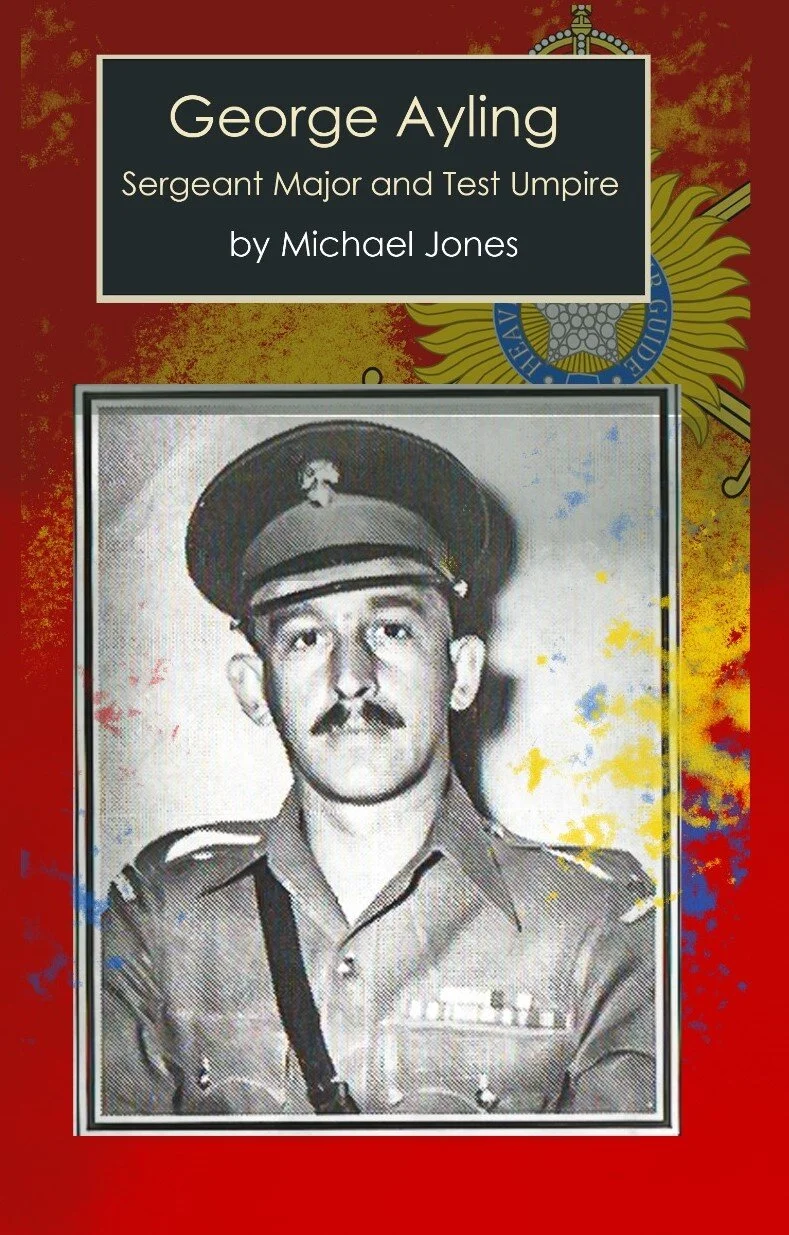




















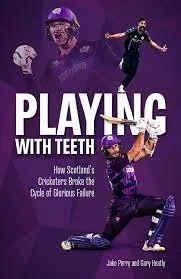




















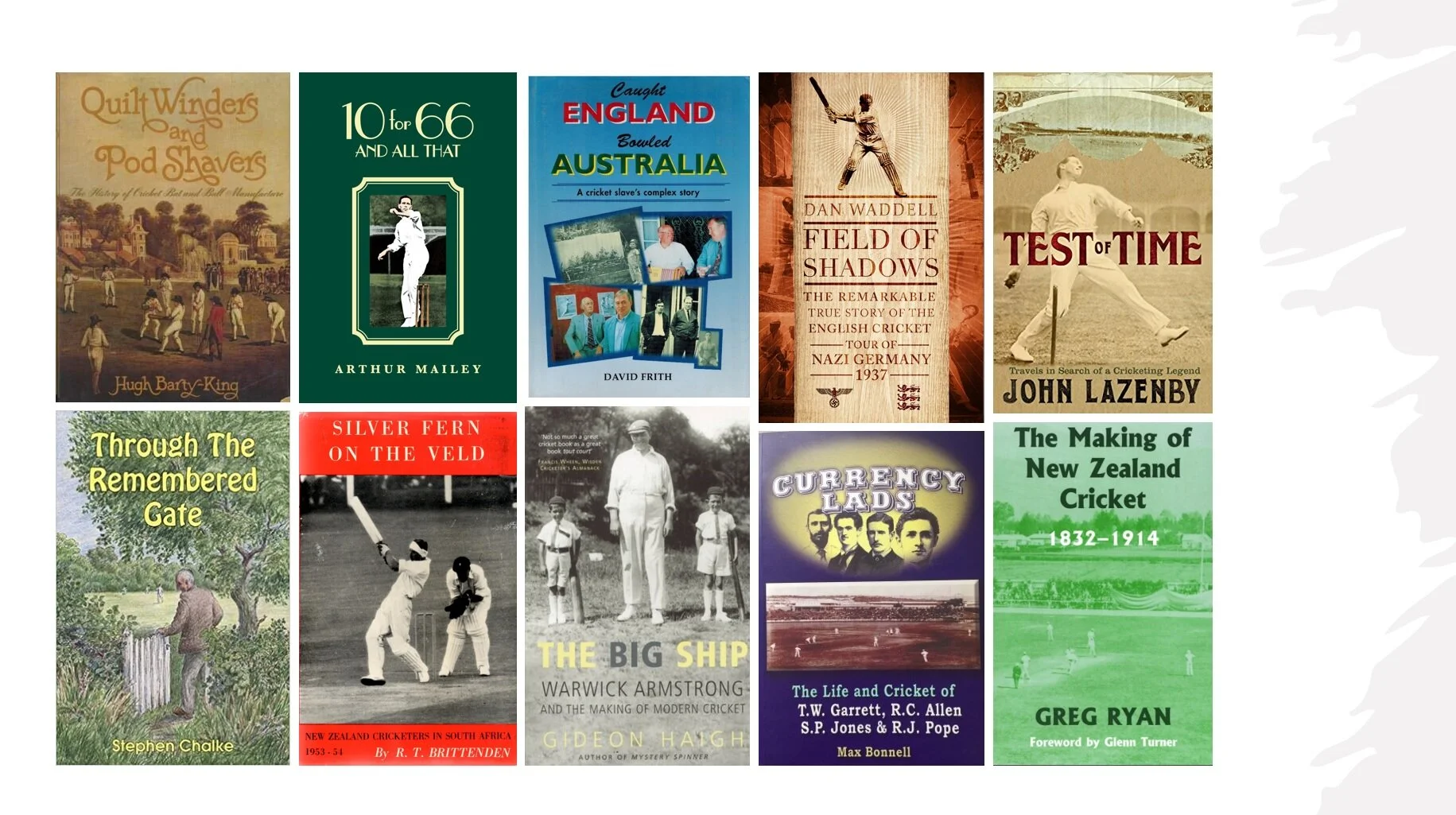

















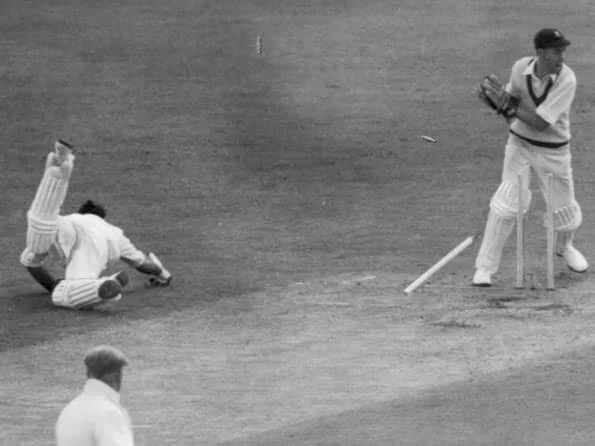































































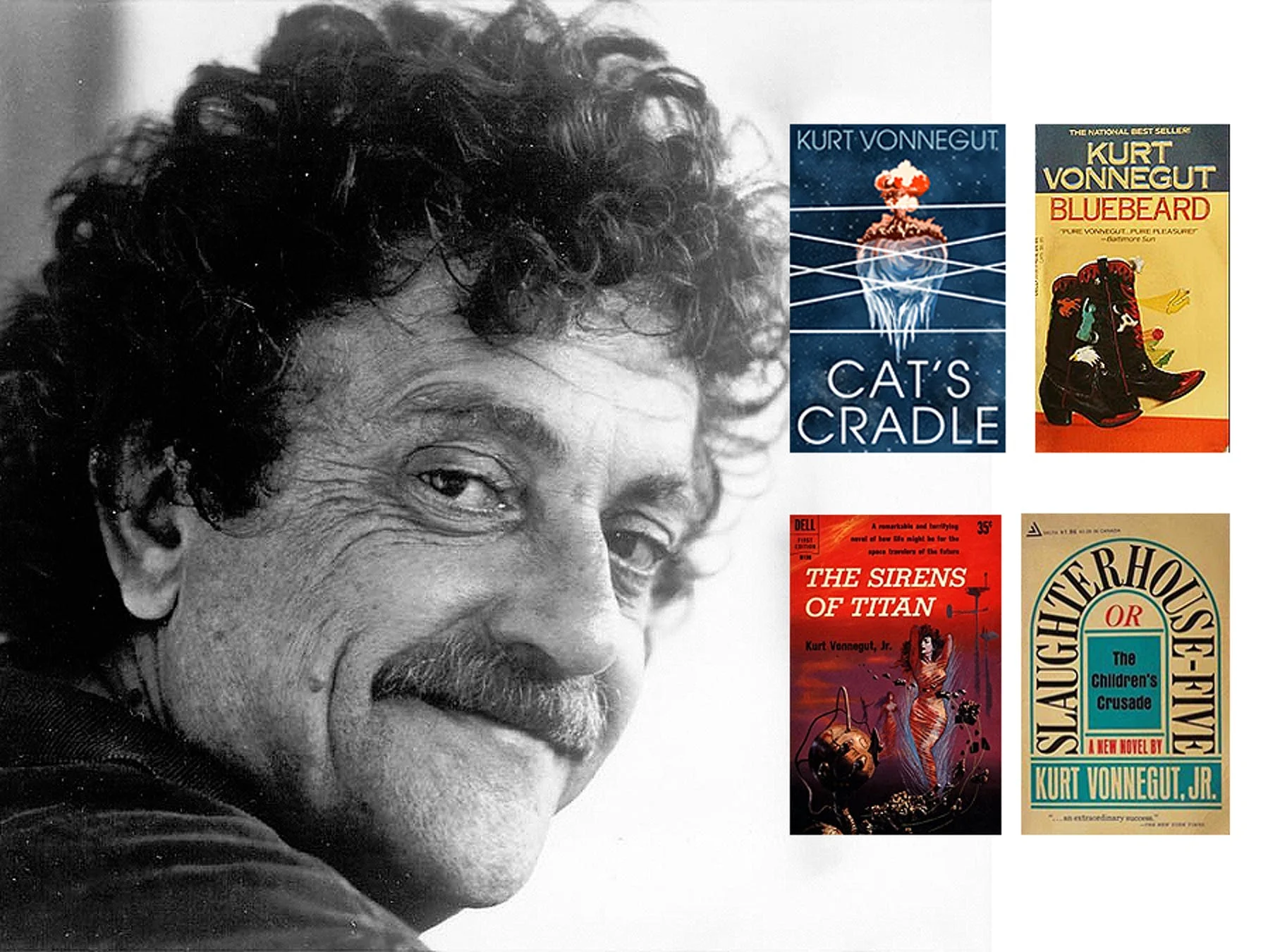













































































Cricket Across Dark Waters by Arunabha Sengupta
The colourful story of India vs West Indies tussles
With a foreword by Shashi Tharoor